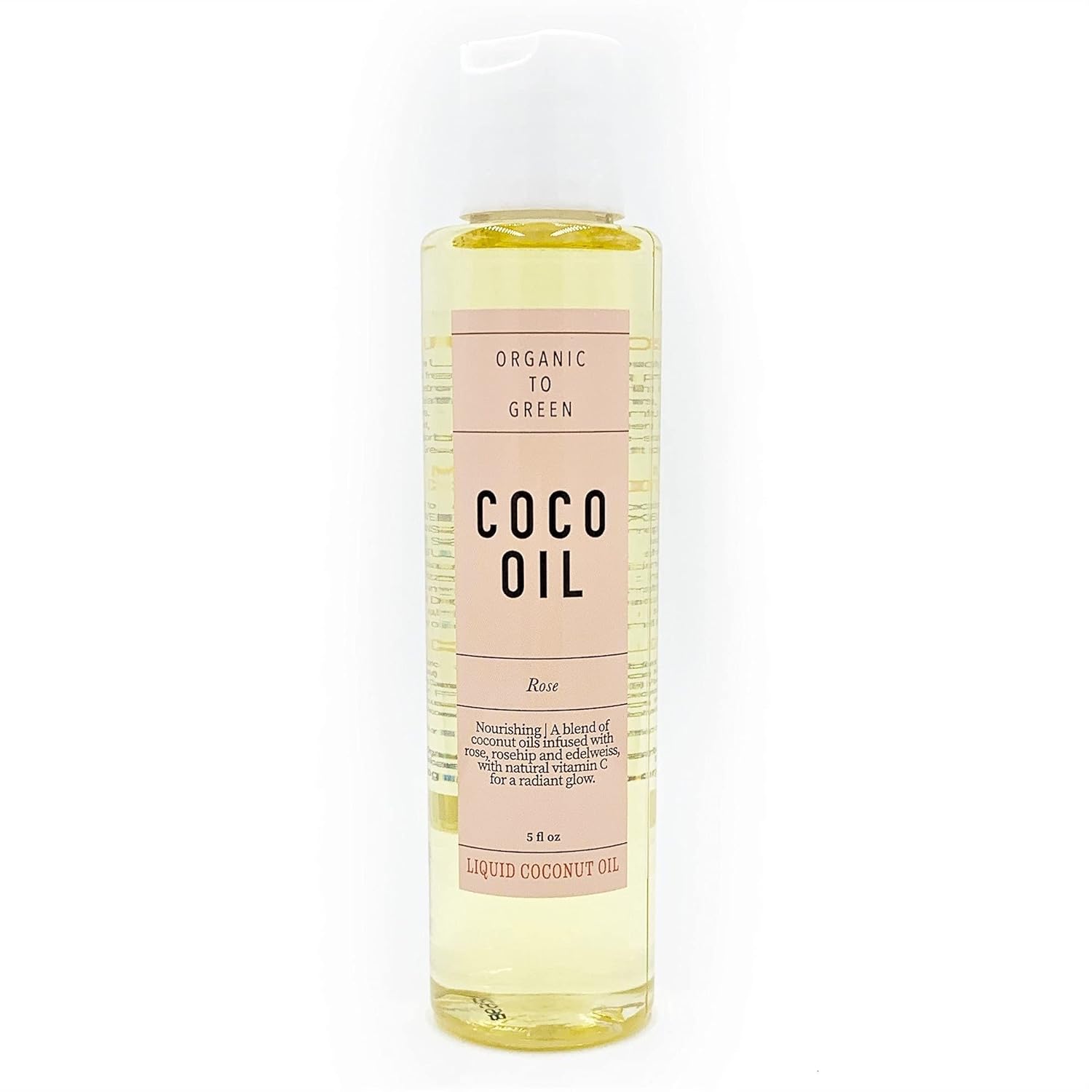
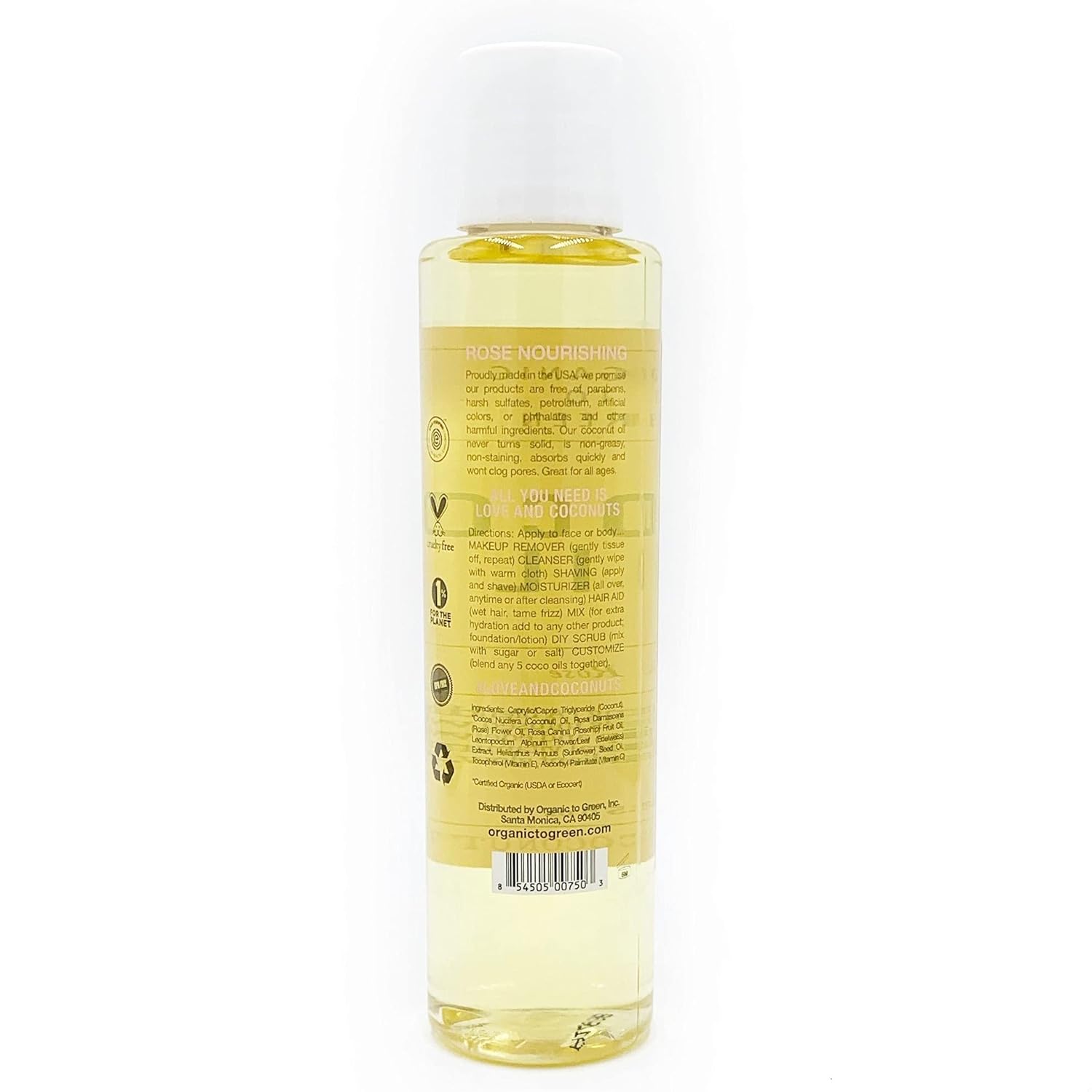
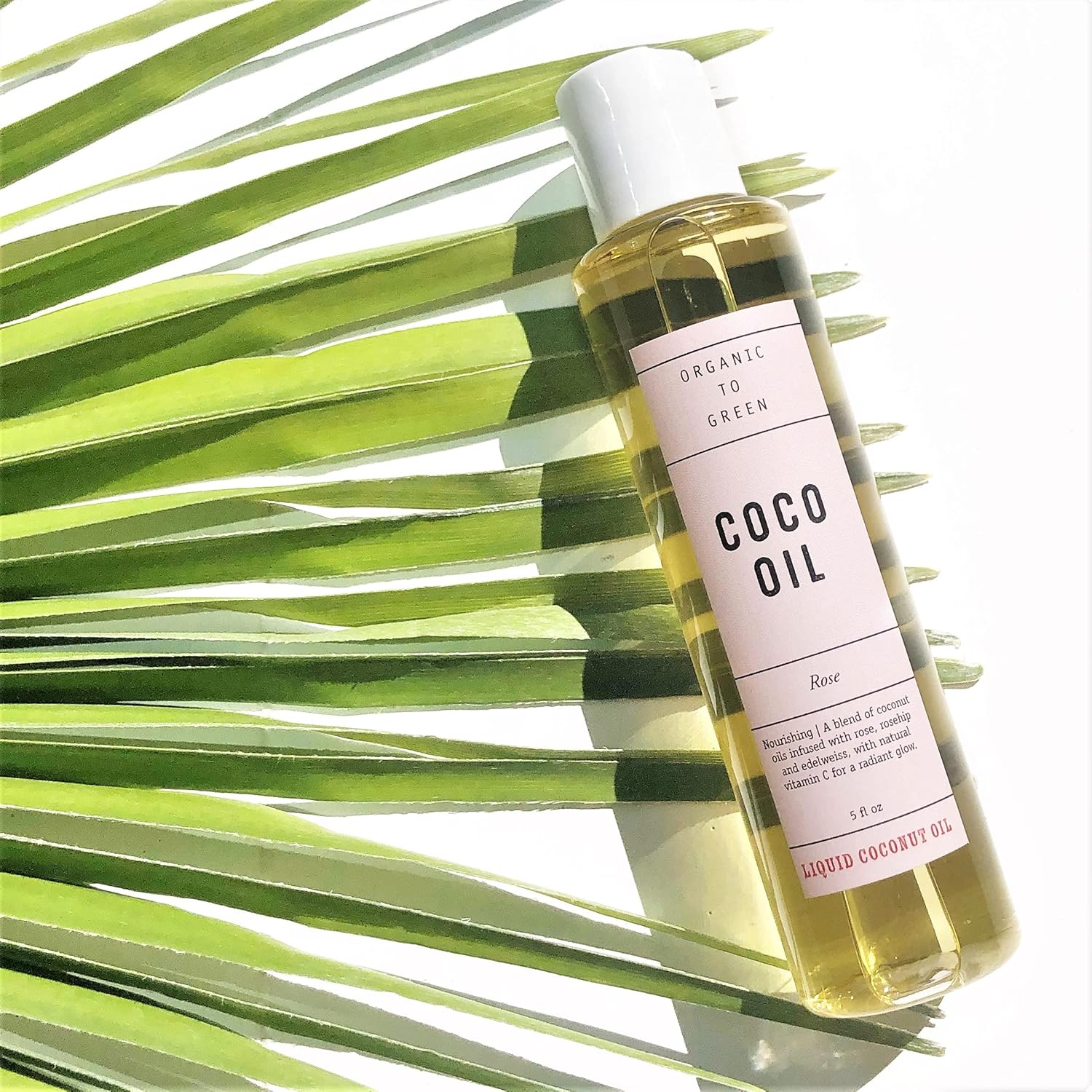
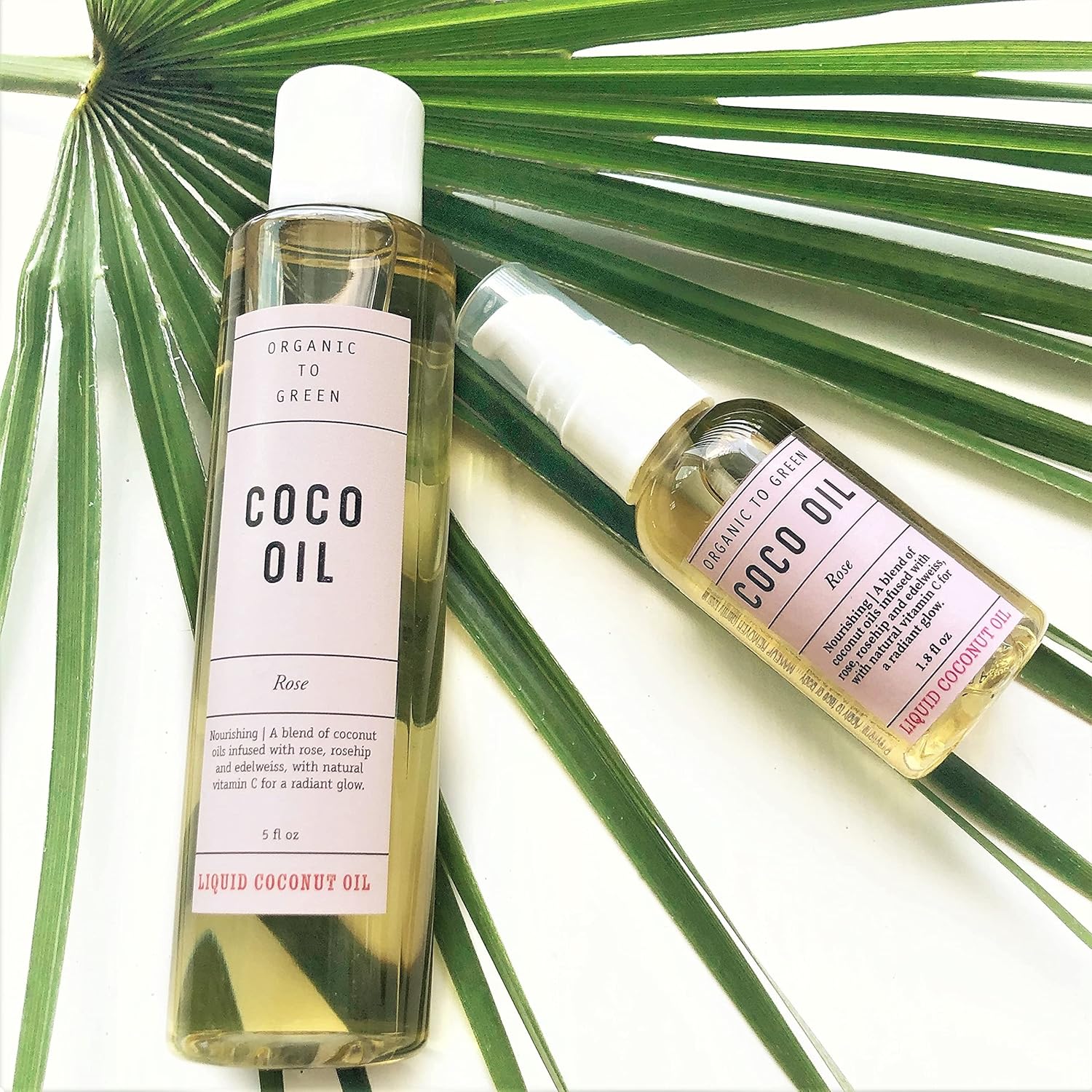
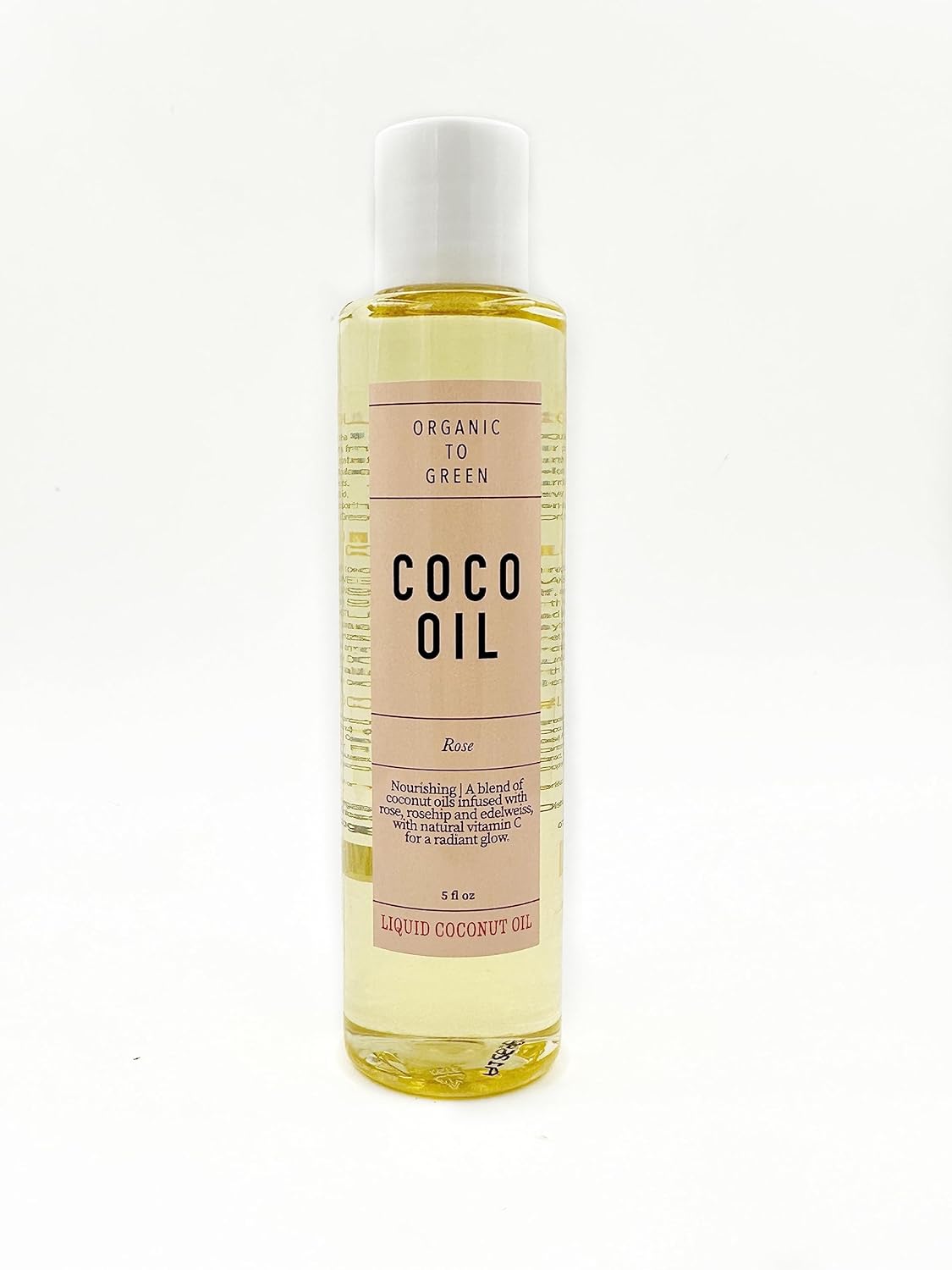
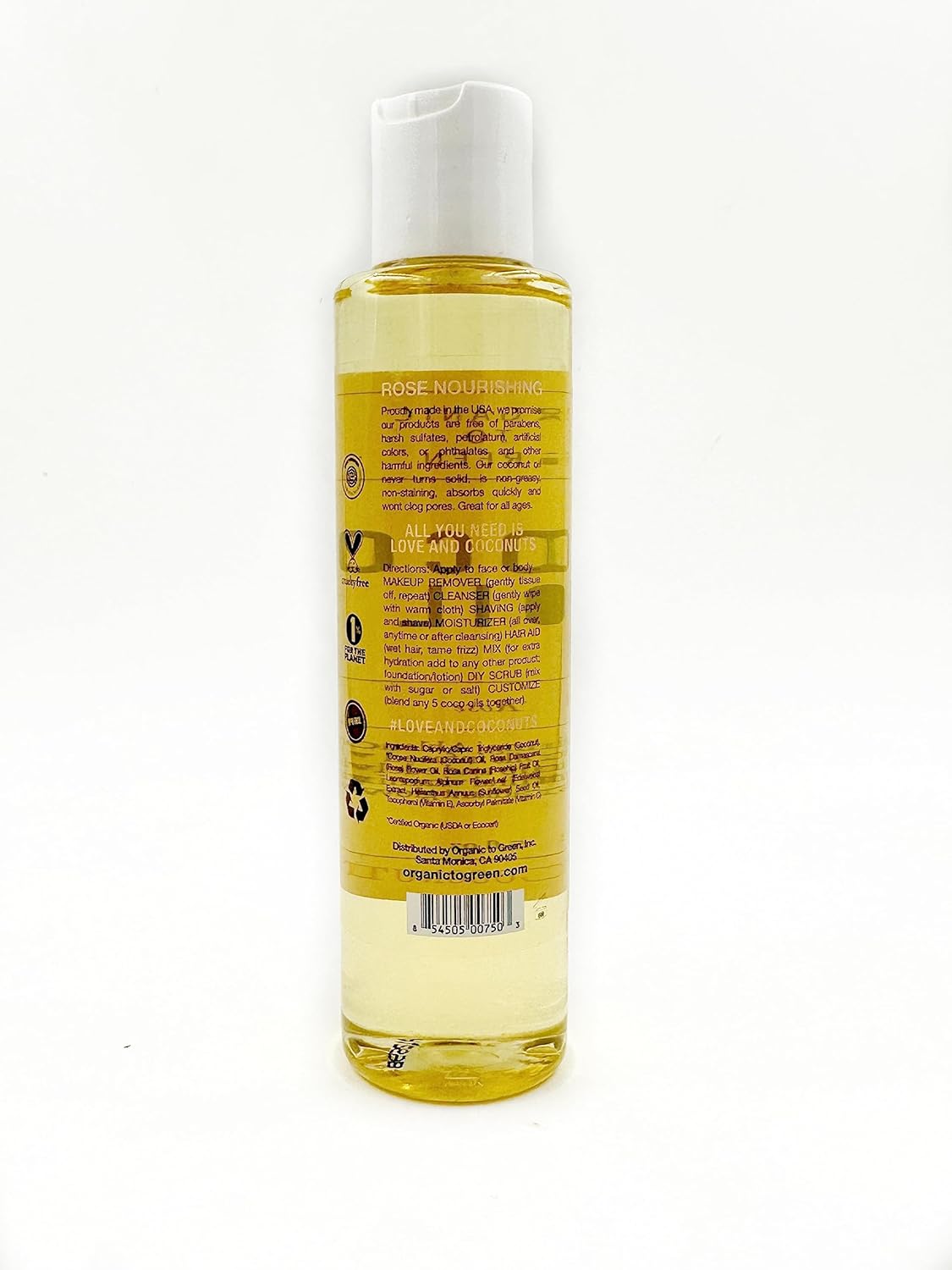
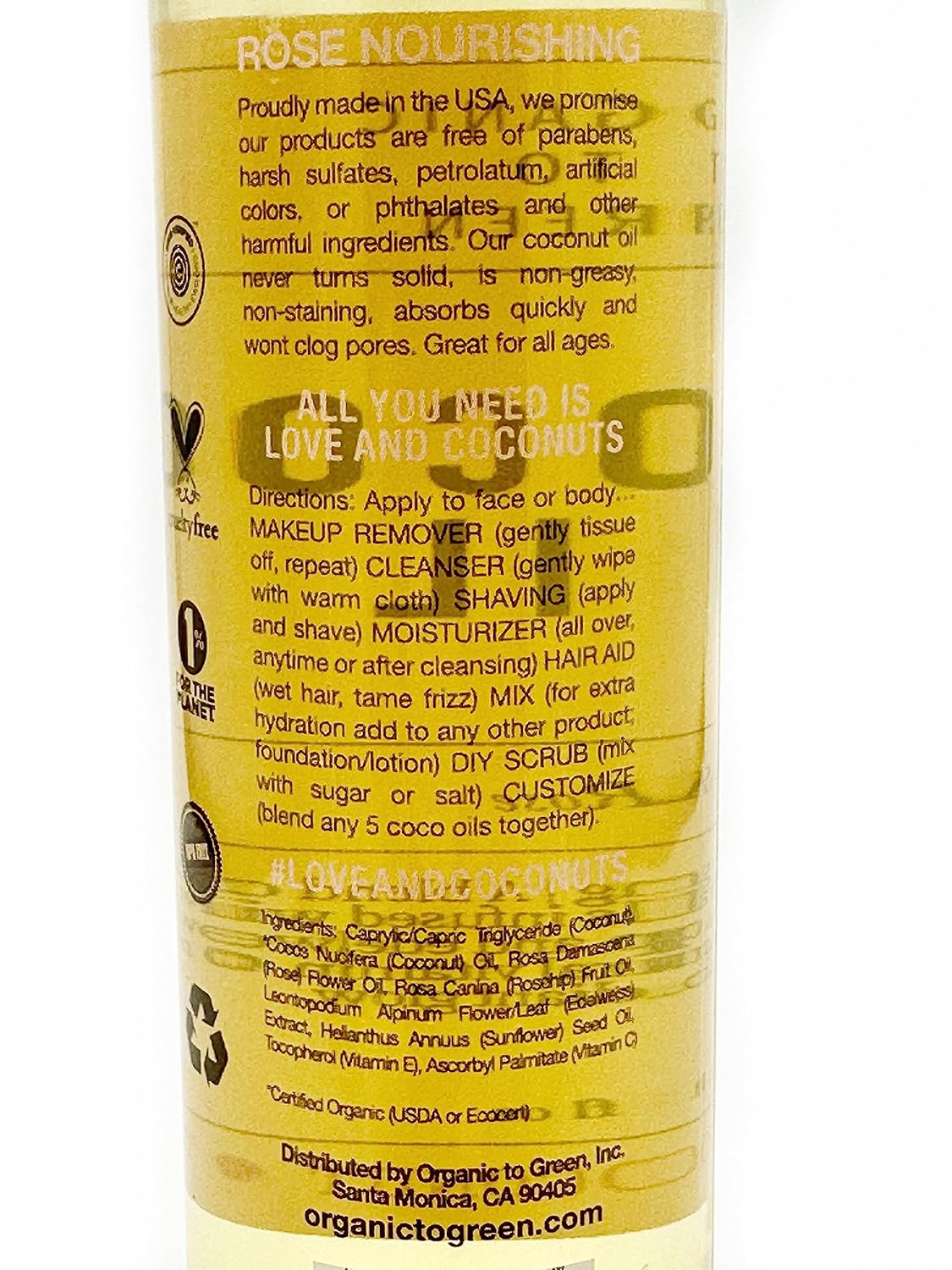
Organic To Green Face Oil - Natural Makeup Remover & Moisturizer, Anti-Aging Benefits - 5 Fl Oz


Tocopherol, D Alpha
Low RiskTocopherol, specifically d-alpha tocopherol, is a naturally occurring form of Vitamin E. It is commonly used in cosmetic and personal care products primarily for its antioxidant properties, helping to protect formulations from oxidation and extend shelf life.
Sustai Insights
D-alpha tocopherol provides effective antioxidant benefits, contributing to product stability. It is sustainably sourced and generally regarded as safe, with low concerns regarding carcinogenicity, allergies, and reproductive toxicity. However, there are minor concerns about endocrine disruption. Regulatory bodies have not imposed significant restrictions, indicating low overall risk. Recommended usage practices include adhering to established safe concentration thresholds. Alternatives, such as other forms of Vitamin E or plant-based antioxidants, may also be considered.
Ascorbic Acid (Vitamin C)
Low RiskAscorbic acid (Vitamin C) is a naturally occurring antioxidant essential for various biological functions, including collagen synthesis and immune response. It is commonly used in cosmetic and food products for its preservative properties and ability to enhance skin brightness.
Sustai Insights
Ascorbic acid provides functional benefits as an effective antioxidant and preservative, contributing to skin health and product stability. It is generally recognized as safe with low health risks, including minimal concerns for carcinogenicity and allergies. Environmentally, it poses low risks, as it is biodegradable and does not bioaccumulate. Regulatory bodies like the FDA have not imposed significant restrictions on its use. Overall, the ingredient presents a low risk, with safe usage practices ensuring consumer safety, and alternatives such as natural extracts exist for those seeking different formulations.
Caprylic Triglyceride
Low RiskCaprylic triglyceride is an ester derived from coconut oil and glycerin, commonly used in cosmetic formulations as an emollient, stabilizer, and skin-conditioning agent. It helps to improve the texture and spreadability of products while providing a lightweight, non-greasy feel.
Sustai Insights
Caprylic triglyceride offers functional benefits such as enhanced skin moisturization and improved formulation stability. It is generally regarded as safe, with low concerns regarding carcinogenicity, allergenic potential, and reproductive toxicity. Environmental impact is minimal, with no significant pollutant or bioaccumulative properties identified. Regulatory bodies have not issued warnings or restrictions. Overall, the risk level is low, making it a suitable ingredient in cosmetic products. Safe usage practices include adhering to recommended concentrations, and while there are alternatives, caprylic triglyceride remains a reliable choice.
Helianthus Annuus (Sunflower) Seed
Low RiskHelianthus annuus (sunflower) seed is derived from the seeds of the sunflower plant and is commonly used in various cosmetic and personal care products. It serves primarily as an emollient and skin conditioning agent, providing moisture and enhancing the texture of formulations.
Sustai Insights
Helianthus annuus (sunflower) seed offers functional benefits, including skin conditioning and moisturizing properties, while being sustainably sourced and biodegradable. Health risks are minimal, with low concerns for carcinogenicity, allergies, and reproductive toxicity. Environmentally, it presents low risks of pollution or bioaccumulation. Regulatory assessments indicate no current restrictions. Overall, it is considered a low-risk ingredient, and safe usage practices should be maintained. Alternative ingredients may include other plant-based oils, but the sunflower seed oil remains a viable option.
Ascorbyl Palmitate (Vitamin C Palmitate)
Low RiskAscorbyl palmitate, also known as vitamin C palmitate, is a compound formed by the esterification of ascorbic acid (vitamin C) and palmitic acid. It is primarily used in cosmetic and food products for its antioxidant properties and as a stabilizer for formulations containing fats and oils.
Sustai Insights
Ascorbyl palmitate offers functional benefits as an antioxidant, contributing to product stability and potentially enhancing skin health. It is generally regarded as safe, with low concerns regarding carcinogenicity, allergies, and reproductive toxicity. However, there are considerations regarding biochemical changes at a cellular level, and while it poses minimal environmental risks, it is essential to follow regulatory guidelines. Overall, the risk level is low, making it a suitable ingredient in various applications. Alternatives include other antioxidants like tocopherols for similar benefits.
Cocos Nucifera (Coconut) Oil
Low RiskCocos Nucifera (Coconut) Oil is derived from the kernels of the coconut palm. It is primarily used in cosmetic formulations for its emollient and moisturizing properties, making it suitable for skin and hair care products.
Sustai Insights
Coconut oil serves as an effective moisturizer and emollient, promoting skin hydration and softness. It is sustainably sourced and biodegradable. Health risks are minimal, with low concerns regarding carcinogenicity, allergens, and reproductive toxicity. Environmental impact is also low, as it does not contribute significantly to pollution or bioaccumulation. Regulatory bodies have not issued restrictions on its use. Overall, coconut oil presents a low risk for health and environmental concerns, making it a safe ingredient in cosmetic products.
Tocopherol, D Alpha
Low RiskTocopherol, specifically d-alpha tocopherol, is a naturally occurring form of Vitamin E. It is commonly used in cosmetic and personal care products primarily for its antioxidant properties, helping to protect formulations from oxidation and extend shelf life.
Sustai Insights
D-alpha tocopherol provides effective antioxidant benefits, contributing to product stability. It is sustainably sourced and generally regarded as safe, with low concerns regarding carcinogenicity, allergies, and reproductive toxicity. However, there are minor concerns about endocrine disruption. Regulatory bodies have not imposed significant restrictions, indicating low overall risk. Recommended usage practices include adhering to established safe concentration thresholds. Alternatives, such as other forms of Vitamin E or plant-based antioxidants, may also be considered.
Ascorbic Acid (Vitamin C)
Low RiskAscorbic acid (Vitamin C) is a naturally occurring antioxidant essential for various biological functions, including collagen synthesis and immune response. It is commonly used in cosmetic and food products for its preservative properties and ability to enhance skin brightness.
Sustai Insights
Ascorbic acid provides functional benefits as an effective antioxidant and preservative, contributing to skin health and product stability. It is generally recognized as safe with low health risks, including minimal concerns for carcinogenicity and allergies. Environmentally, it poses low risks, as it is biodegradable and does not bioaccumulate. Regulatory bodies like the FDA have not imposed significant restrictions on its use. Overall, the ingredient presents a low risk, with safe usage practices ensuring consumer safety, and alternatives such as natural extracts exist for those seeking different formulations.
Caprylic Triglyceride
Low RiskCaprylic triglyceride is an ester derived from coconut oil and glycerin, commonly used in cosmetic formulations as an emollient, stabilizer, and skin-conditioning agent. It helps to improve the texture and spreadability of products while providing a lightweight, non-greasy feel.
Sustai Insights
Caprylic triglyceride offers functional benefits such as enhanced skin moisturization and improved formulation stability. It is generally regarded as safe, with low concerns regarding carcinogenicity, allergenic potential, and reproductive toxicity. Environmental impact is minimal, with no significant pollutant or bioaccumulative properties identified. Regulatory bodies have not issued warnings or restrictions. Overall, the risk level is low, making it a suitable ingredient in cosmetic products. Safe usage practices include adhering to recommended concentrations, and while there are alternatives, caprylic triglyceride remains a reliable choice.
Helianthus Annuus (Sunflower) Seed
Low RiskHelianthus annuus (sunflower) seed is derived from the seeds of the sunflower plant and is commonly used in various cosmetic and personal care products. It serves primarily as an emollient and skin conditioning agent, providing moisture and enhancing the texture of formulations.
Sustai Insights
Helianthus annuus (sunflower) seed offers functional benefits, including skin conditioning and moisturizing properties, while being sustainably sourced and biodegradable. Health risks are minimal, with low concerns for carcinogenicity, allergies, and reproductive toxicity. Environmentally, it presents low risks of pollution or bioaccumulation. Regulatory assessments indicate no current restrictions. Overall, it is considered a low-risk ingredient, and safe usage practices should be maintained. Alternative ingredients may include other plant-based oils, but the sunflower seed oil remains a viable option.
Ascorbyl Palmitate (Vitamin C Palmitate)
Low RiskAscorbyl palmitate, also known as vitamin C palmitate, is a compound formed by the esterification of ascorbic acid (vitamin C) and palmitic acid. It is primarily used in cosmetic and food products for its antioxidant properties and as a stabilizer for formulations containing fats and oils.
Sustai Insights
Ascorbyl palmitate offers functional benefits as an antioxidant, contributing to product stability and potentially enhancing skin health. It is generally regarded as safe, with low concerns regarding carcinogenicity, allergies, and reproductive toxicity. However, there are considerations regarding biochemical changes at a cellular level, and while it poses minimal environmental risks, it is essential to follow regulatory guidelines. Overall, the risk level is low, making it a suitable ingredient in various applications. Alternatives include other antioxidants like tocopherols for similar benefits.
Cocos Nucifera (Coconut) Oil
Low RiskCocos Nucifera (Coconut) Oil is derived from the kernels of the coconut palm. It is primarily used in cosmetic formulations for its emollient and moisturizing properties, making it suitable for skin and hair care products.
Sustai Insights
Coconut oil serves as an effective moisturizer and emollient, promoting skin hydration and softness. It is sustainably sourced and biodegradable. Health risks are minimal, with low concerns regarding carcinogenicity, allergens, and reproductive toxicity. Environmental impact is also low, as it does not contribute significantly to pollution or bioaccumulation. Regulatory bodies have not issued restrictions on its use. Overall, coconut oil presents a low risk for health and environmental concerns, making it a safe ingredient in cosmetic products.
Discover the benefits of Organic To Green Coco Oil, a versatile face oil designed for the environmentally and health-conscious consumer. This lightweight, all-natural oil not only removes makeup but also moisturizes and offers natural anti-aging properties, making it an essential addition to any skincare routine.
- Gentle Makeup Remover: Effortlessly dissolves waterproof makeup, leaving skin soft and hydrated.
- All-Natural Ingredients: Formulated with pure coconut oil and organic essential oils, minimizing irritation and ensuring a gentle touch.
- Multi-Use Moisturizer: Can be used alone or added to your skincare regimen for enhanced hydration and anti-aging benefits.
- Eco-Friendly and Organic: EWG verified with sustainably sourced ingredients, supporting ethical practices and environmental responsibility.
- Rich in Nutrients: Infused with vitamins and botanical extracts for nourishment and skin vitality, ensuring a radiant complexion.
Elevate your skincare routine with Organic To Green Coco Oil, where beauty meets sustainability.
Subscribe & Save with Sustai
- Best Price Guarantee: Always enjoy the lowest prices on sustainable home essentials.
- No Surprises: We’ll notify you before shipping. No hidden fees, ever.
- You’re in Charge: Change, pause, or cancel your subscription anytime with ease.
- Eco-Friendly Deliveries: Our grouped shipments mean less packaging and lower emissions.
Join us on a sustainable journey. Special offers for a limited time! Prices and promotions may change.
Recommended Products
Discover the benefits of Organic To Green Coco Oil, a versatile face oil designed for the environmentally and health-conscious consumer. This lightweight, all-natural oil not only removes makeup but also moisturizes and offers natural anti-aging properties, making it an essential addition to any skincare routine.
- Gentle Makeup Remover: Effortlessly dissolves waterproof makeup, leaving skin soft and hydrated.
- All-Natural Ingredients: Formulated with pure coconut oil and organic essential oils, minimizing irritation and ensuring a gentle touch.
- Multi-Use Moisturizer: Can be used alone or added to your skincare regimen for enhanced hydration and anti-aging benefits.
- Eco-Friendly and Organic: EWG verified with sustainably sourced ingredients, supporting ethical practices and environmental responsibility.
- Rich in Nutrients: Infused with vitamins and botanical extracts for nourishment and skin vitality, ensuring a radiant complexion.
Elevate your skincare routine with Organic To Green Coco Oil, where beauty meets sustainability.

You can have at most 2 Sustainable Steals products in your cart
Customer Reviews
Customers’ View
Customers appreciate the effectiveness and eco-friendly nature of this face oil, noting its lightweight formula and natural ingredients. Many users commend the pleasant scent, with comments highlighting how it calms and hydrates the skin while also serving as an effective makeup remover. Feedback often emphasizes the absence of harsh chemicals, with customers expressing satisfaction with the product's quality and its ability to deliver soft skin without breakouts. Additionally, its eco-friendly credentials, including EWG verification and sustainable sourcing, resonate well with health-conscious consumers. Overall, customers find this product to be a reliable choice that aligns with their values of environmental responsibility and skincare safety.
AI-generated from the text of customer reviewsThis product has no reviews yet.




